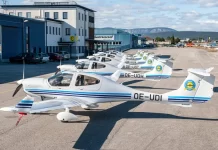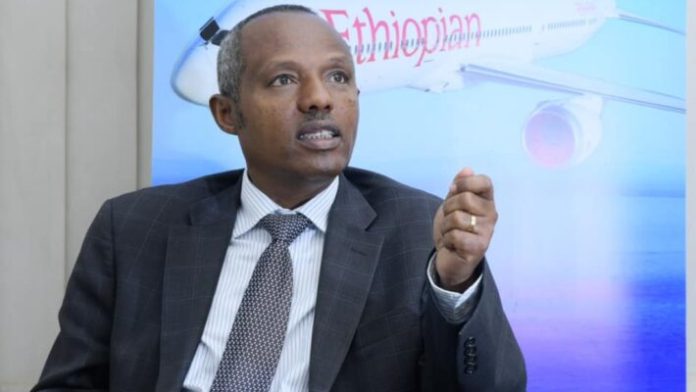Mesfin Tasew, Group Chief Executive Officer (GCEO) of Ethiopian Airlines, has attributed the failure of the Nigeria Air project to political interference, marking the first time he has spoken publicly about the controversial deal since it was halted by the current Nigerian government.
Ethiopian Airlines, the largest airline in Africa, had initially partnered with the Nigerian government under the previous administration of President Muhammadu Buhari to establish a national carrier, Nigeria Air. The project, spearheaded by former aviation minister Hadi Sirika, aimed to leverage Ethiopian Airlines’ expertise to create a profitable and reliable airline for Nigeria. However, the initiative faced significant opposition from Nigerian airlines, who perceived the involvement of Ethiopian Airlines as a threat to their businesses.
In an interview with Bloomberg, Tasew expressed his disappointment over the outcome, stating, “We had high hopes of establishing a strong national carrier for Nigeria. Unfortunately, it did not succeed after the change of government; the project is closed now.”
Tasew explained that the process became highly politicized, which ultimately led to the collapse of the partnership. “We tried to support Nigeria by partnering with the government and other institutional investors to use our expertise and experience. Our goal was to establish a reliable airline that would be profitable in the short term. However, the Nigerian airlines viewed our involvement as a threat, which was not our intention. Since the proposal was rejected, we have no intention of pursuing it further.”
The controversy surrounding the Nigeria Air deal intensified when the new aviation minister, Festus Keyamo, suspended the project shortly after taking office. Keyamo criticized the agreement, arguing that it was not beneficial to Nigeria and could potentially lead to monopolistic practices favoring Ethiopian Airlines.
Despite the setbacks, Tasew confirmed that Ethiopian Airlines has no current plans to re-enter the Nigerian market or partner with local airlines. “We don’t have a current plan to go to Nigeria as it stands. We don’t want to be a problem there as long as they don’t accept our involvement,” he stated.
The collapse of the Nigeria Air project highlights the complexities and challenges of establishing a national carrier in Nigeria, particularly when external partnerships are involved. As the debate continues, the future of Nigeria’s aviation industry remains uncertain, with the potential for new developments under the leadership of President Bola Tinubu and Minister Festus Keyamo.
















